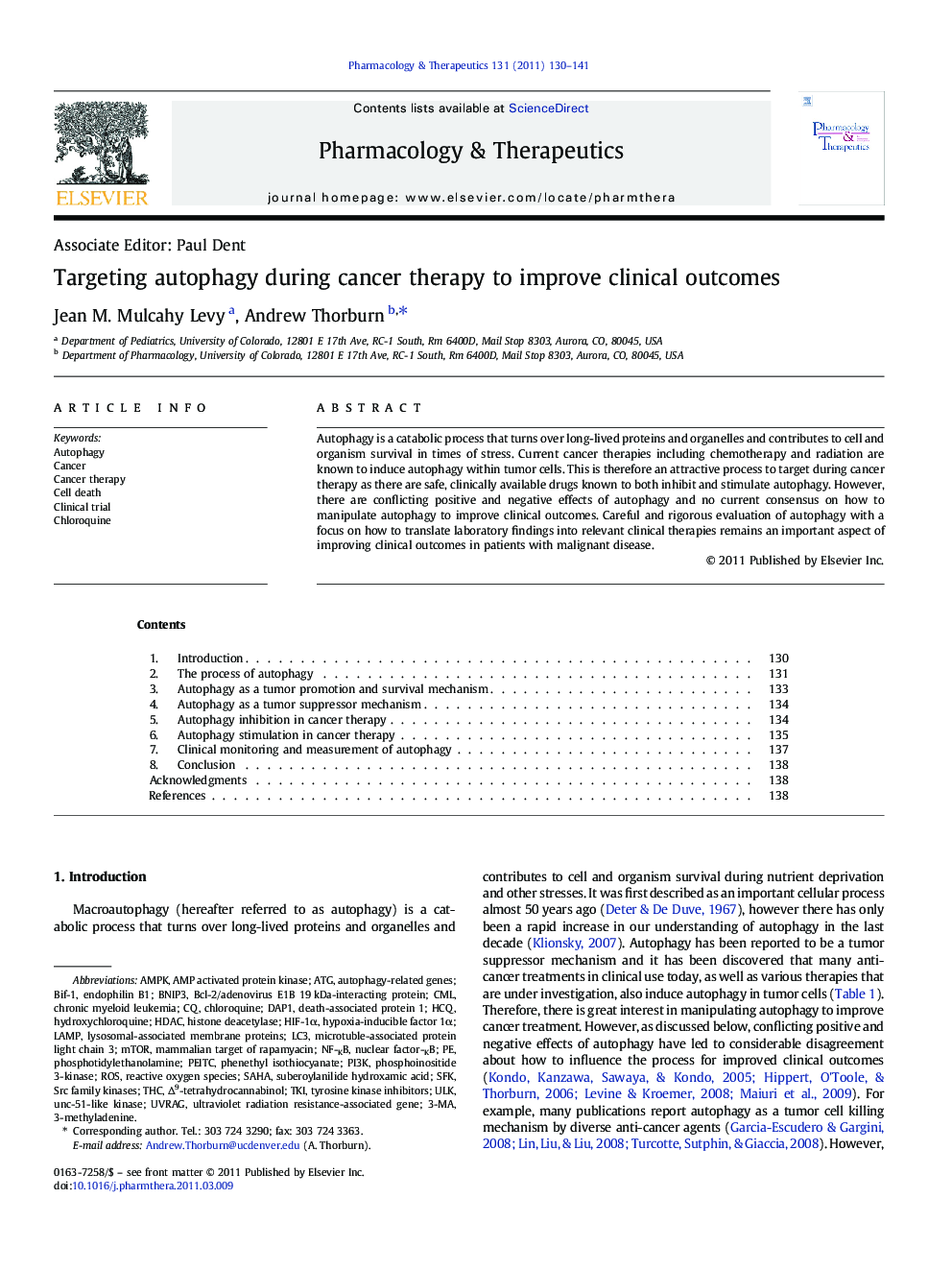| Article ID | Journal | Published Year | Pages | File Type |
|---|---|---|---|---|
| 5844073 | Pharmacology & Therapeutics | 2011 | 12 Pages |
Abstract
Autophagy is a catabolic process that turns over long-lived proteins and organelles and contributes to cell and organism survival in times of stress. Current cancer therapies including chemotherapy and radiation are known to induce autophagy within tumor cells. This is therefore an attractive process to target during cancer therapy as there are safe, clinically available drugs known to both inhibit and stimulate autophagy. However, there are conflicting positive and negative effects of autophagy and no current consensus on how to manipulate autophagy to improve clinical outcomes. Careful and rigorous evaluation of autophagy with a focus on how to translate laboratory findings into relevant clinical therapies remains an important aspect of improving clinical outcomes in patients with malignant disease.
Keywords
NF-kB3-MALC3ATGSFKHIF-1αBNIP3SAHACMLDAP1HDACHCQmTORTKITHCPEITCPI3KUVRAGEndophilin B1UNC-51-like kinaseAMPK3-methyladenineAMP activated protein kinaseULKSrc family kinasesROSΔ9-TetrahydrocannabinolAutophagySuberoylanilide hydroxamic acidBif-1CancerCancer therapyhypoxia-inducible factor 1αNuclear factor-kBphosphoinositide 3-kinaseLAMPChronic myeloid leukemiaCell deathTyrosine kinase inhibitorshydroxychloroquinehistone deacetylasePhenethyl isothiocyanateautophagy-related genesClinical trialChloroquineReactive oxygen species
Related Topics
Health Sciences
Pharmacology, Toxicology and Pharmaceutical Science
Pharmacology
Authors
Jean M. Mulcahy Levy, Andrew Thorburn,
